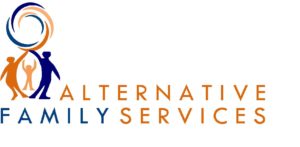Family Homes for Youth: AFS’s New Juvenile Restorative Justice Program in San Francisco

AFS is honored to launch our new juvenile restorative justice program, Family Homes for Youth, in partnership with the City and County of San Francisco.
AFS is honored to launch our new juvenile restorative justice program, Family Homes for Youth, in partnership with the City and County of San Francisco. For eligible youth entering justice system, the Family Homes for Youth pilot program provides highly responsive, short-term emergency and long-term placement options in culturally responsive, family settings, all within a strengths-based, trauma-informed treatment framework.
Traditionally, Probation Departments place youth involved in the juvenile justice system in group care facilities rather than a home setting. The premise of the Family Homes for Youth program is with the right supports – clinical, monetary, logistical, emotional, social, etc. – young people who previously were only considered appropriate for congregate care may now rehabilitate within the benefits and boundaries of family living.
A large percentage of youth engaged in criminal behavior have been raised in unstable homes and environments. Youth involved in the Family Homes for Youth program will benefit from AFS’s Intensive Services Foster Care, which includes dedicated mental health services and extensive wraparound agency support. Resource parents who care for youth in this program receive additional training to meet the population’s unique needs. For more acute care, some clients will receive Therapeutic Foster Care, a short-term, intensive, highly coordinated, trauma-informed and individualized intervention provided by trained resource parents.
Understanding Restorative Practices in the Juvenile Justice System
Ultimately, the goal behind restorative justice programs is to rethink traditional approaches to public safety, crime and punishment. Instead of the more traditional carceral approach (jails, prisons, group homes), most restorative justice programs intend to divert offenders away from these outcomes, often by offering services such as counseling, behavioral health care, job training and housing support. By providing wraparound services, ideal candidates will choose to participate positively in society instead of committing further crimes.
Proponents argue that by helping individuals comprehend the damage they have caused as a result of their actions, restorative justice programs can both repair the harm caused by incarceration and by the crimes themselves, which ultimately benefits perpetrators, victims and the community at large.
There are many restorative justice programs already in place across the country, including many here in Northern California. For example, a restorative justice program in Santa Cruz County has helped to dramatically reduce recidivism and bookings, while the restorative justice program in Oakland Unified School District has reduced suspensions and truancy while significantly boosting high school graduation rates.
Ultimately, we hope Family Homes for Youth, our new restorative justice program in San Francisco, yields similar positive results over time. We know youth who have been in foster care have an increased incarceration rate compared to their peers who were never in foster care; like everything else we do, our goal is to provide better opportunities and outcomes for the youth in our communities who are most in need of love and support.
AFS is currently hiring additional case aides for the Family Homes for Youth program. If you’re interested in supporting our mission and being a part of this new, innovative program, head here: https://www.afs4kids.org/careers/.
